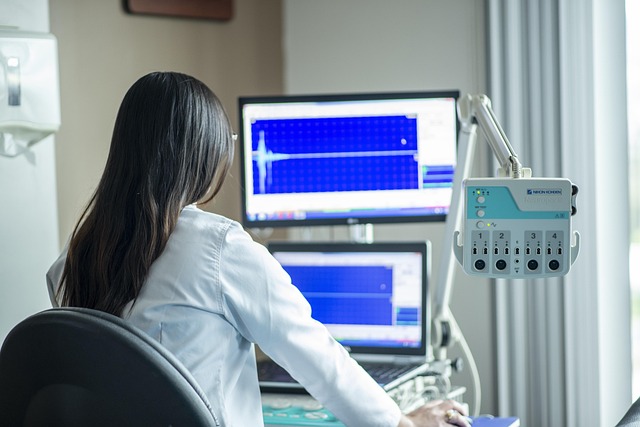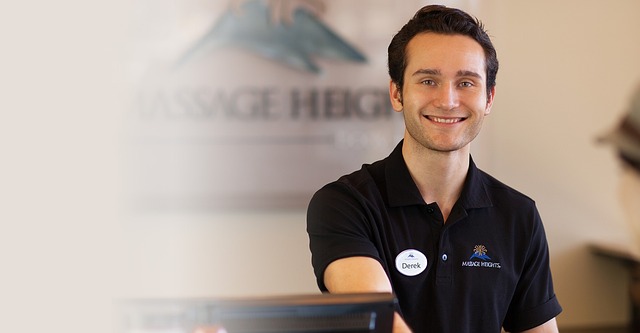Eating disorders like anorexia nervosa and bulimia nervosa are serious conditions requiring professional help. South Florida offers specialized programs combining therapy, counseling, group support, and nutrition education for effective anorexia bulimia treatment. These programs address underlying emotional issues, promote healthy coping mechanisms, and foster positive relationships with food and bodies. Therapies such as CBT and DBT, medication, and support groups contribute to long-term recovery, with aftercare resources ensuring sustained progress.
“Uncover a journey towards recovery with comprehensive eating disorder treatment programs in South Florida. This region offers specialized care for individuals facing anorexia and bulimia, providing a supportive network essential for healing. From understanding these disorders’ intricacies to identifying subtle signs, this article guides you through available treatments—therapies, medications, and support groups—that have proven successful.
Explore real-life recovery stories and discover the resources that continue to empower those conquered by anorexia and bulimia.”
- Understanding Eating Disorders: Anorexia and Bulimia
- Identifying Signs and Symptoms of Eating Disorders in South Florida
- Types of Treatment Programs Available in the Region
- The Role of Therapies, Medications, and Support Groups
- Recovery Success Stories and Resources for Continued Support
Understanding Eating Disorders: Anorexia and Bulimia

Eating disorders, such as anorexia nervosa and bulimia nervosa, are complex conditions that significantly impact individuals’ physical and mental health. Anorexia is characterized by a severe restriction of food intake, leading to dangerously low body weight, distorted body image, and intense fear of gaining weight. Individuals with anorexia often follow rigid dietary rules and may engage in excessive exercise. Bulimia, on the other hand, involves cycles of binge eating followed by compensatory behaviors like self-induced vomiting or excessive use of laxatives to prevent weight gain. Both disorders share a common root in psychological factors, including emotional distress, body image issues, and a distorted perception of one’s own body.
Recognizing the symptoms and seeking professional help is crucial for anorexia bulimia treatment. ED recovery programs typically include a combination of eating disorder therapy, individual counseling, group support, and nutrition counseling to address the underlying causes and develop healthy coping mechanisms. These programs foster a safe environment where individuals can learn to recognize their triggers, challenge negative thoughts, and adopt a more positive relationship with food and their bodies.
Identifying Signs and Symptoms of Eating Disorders in South Florida

In South Florida, recognizing the signs and symptoms of eating disorders is crucial for timely intervention and anorexia bulimia treatment. The state’s vibrant and bustling communities often hide beneath their surface the subtle and not-so-subtle indicators of eating disorders, such as significant weight loss or gain, extreme food restriction, excessive exercise routines, and hidden or secretive behaviors related to food. These symptoms can manifest differently in various settings, from schools and colleges to workplaces and social gatherings. Individuals struggling with eating disorders may exhibit changes in mood, energy levels, and social interactions, often seeking solitude or becoming overly focused on their appearance.
Nutrition counseling plays a vital role in the early detection process, as professionals can assess dietary patterns and offer insights into unhealthy behaviors. Eating disorder therapy focuses on addressing the underlying emotional and psychological factors contributing to these conditions. ED recovery programs in South Florida are designed to support individuals in breaking free from destructive routines and fostering positive relationships with food and bodies. By combining individual therapy, group support, and education, these programs aim to help those affected by anorexia or bulimia regain control over their lives and embrace a healthier, more balanced existence.
Types of Treatment Programs Available in the Region

In South Florida, a range of specialized treatment programs cater to individuals struggling with eating disorders such as anorexia and bulimia. These programs offer comprehensive support, combining various therapeutic approaches tailored to meet the unique needs of each client. Among the most common types of treatments available are individual therapy, where patients work closely with licensed therapists to address underlying emotional issues and distorted thinking patterns related to food; group therapy sessions foster a supportive environment for sharing experiences and learning from peers; and family-based therapy involves educating family members on how they can best support their loved one’s recovery.
Additionally, nutrition counseling is a critical component of many programs, focusing on re-establishing a healthy relationship with food and promoting balanced eating habits. This often includes education about proper nutrition, meal planning, and strategies to cope with emotional triggers related to eating disorders. The region also boasts residential treatment centers offering intensive care and around-the-clock support for those requiring more structured and immersive healing environments. These centers provide a safe space where patients can focus on recovery while receiving personalized treatment plans designed to facilitate lasting ED recovery.
The Role of Therapies, Medications, and Support Groups

In the comprehensive treatment landscape for eating disorders like anorexia and bulimia in South Florida, a multi-faceted approach is essential for effective long-term recovery. Therapies play a pivotal role, offering various forms such as cognitive-behavioral therapy (CBT), dialectical behavior therapy (DBT), and family-based therapy. These therapeutic modalities help individuals challenge distorted thinking patterns, develop healthier coping mechanisms, and foster positive relationships with food and their bodies.
Complementing these therapies, medication can sometimes be prescribed to manage symptoms associated with eating disorders. For instance, selective serotonin reuptake inhibitors (SSRIs) have shown effectiveness in treating binge eating and related impulsivity. Additionally, support groups, both in-person and online, provide a sense of community, fostering open discussions and peer encouragement throughout the recovery journey. These combined strategies—therapies, medication when needed, and supportive groups—form a robust framework for nurturing ED recovery.
Recovery Success Stories and Resources for Continued Support

In the journey towards recovery from eating disorders like anorexia or bulimia, hearing success stories can be incredibly inspiring and motivating. South Florida offers a range of programs that combine specialized anorexia bulimia treatment with supportive environments, empowering individuals to overcome their struggles. These success stories serve as a testament to the effectiveness of tailored therapy approaches, including individual eating disorder therapy, group support sessions, and nutrition counseling.
Many have found solace and restored health through these comprehensive programs, which often include aftercare resources for sustained recovery. From peer support groups that foster a sense of community to ongoing coaching and counseling, there are numerous avenues for continued support post-treatment. These resources ensure individuals stay on track, navigate challenges, and maintain the progress achieved during intensive therapy.
In South Florida, comprehensive eating disorder treatment programs offer hope and healing for individuals struggling with anorexia and bulimia. By combining therapies, medications, and supportive groups, these programs address the physical and emotional aspects of recovery. With dedicated professionals and a network of resources, those seeking help can navigate their journey to overcome eating disorders and embrace a healthier, more fulfilling life. Remember that recovery is achievable, and reaching out for support is the first step towards a brighter future.

